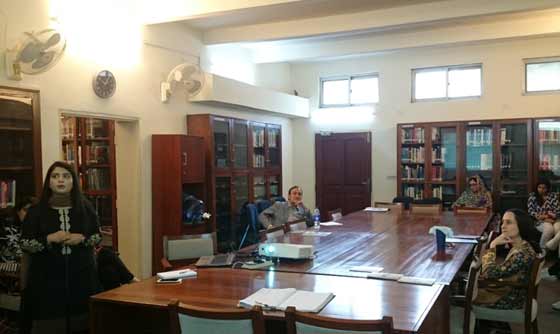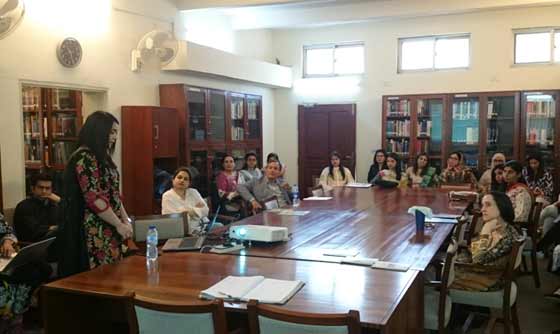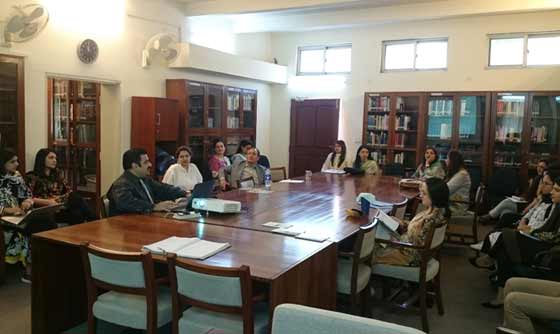 | Department of Economics |
| NEWS & MEDIA |
NEWS
Faculty Research Paper Presentations
The Economics Faculty Research Paper Presentations were held on 2nd May, 2019, at 10:00a.m in TRC-1. Nida Naz and Zainab Idrees presented their MPhil research (abstracts given below). Mr. Salman Ehsan presented on "Service Quality- Striving for Excellence."

Organizational Development, Foreign technology and Economic Growth: Long-run Equilibrium and Closed-form Solutions
Nida Naz
Abstract
This paper examines the economic growth model with constant returns to scale in foreign technology and physical capital. We are analysing the effect of organizational development on economic growth. Differently from the previous studies that focus mainly on the balanced growth path, we also examine the transitional dynamics by using the Lucas-Uzawa framework where organizational capacity affects both physical capital and foreign technology accumulation with externality. Foreign technology in terms of Foreign Direct Investment (FDI) and physical capital improves the organizational development of an economy. In this model, rate of utilization of foreign technology (or proportion of foreign technology used to produce output) will be used in the production of final good. Also the closed form solutions will be discussed.

Corruption, Institutional Barriers and Innovation
Zainab Idrees
Abstract
Innovation and technological progress are considered as crucial factors for economic growth in the long run (Grossman and Helpman, 1993; Nelson and Winter, 1982; Romer, 1990). Differences in innovation and growth performance are often explained by differences in institutions and quality of governance, in particular corruption (Mo, 2001). There are two views regarding role of corruption for innovation and growth; first, corruption causes an increase in transaction cost which may hinder investment in R&D and eventually innovation (Mauro, 1995; Mo, 2001; Guetat, 2006; Dridi, 2013) and second, corruption may accelerate the innovation by speeding up the bureaucratic procedures especially in a developing country where institutional quality is relatively poor (Leff, 1964; Huntington, 1968; Acemoglu and Verdier, 1998). Our aim is to identify whether corruption greases the innovation and growth of firms by accelerating bureaucratic procedures, or rather sands it by deviating investments away from productive activities for Pakistan. We used World Bank Enterprise Survey by World Bank for the years 2013 and 2007 for Pakistan. We find that corruption has direct negative effect on the probability of a firm introducing innovation, but a positive affect when interacted with institutional obstacles. This provides support for the hypothesis that corruption serves as a mechanism to bypass the institutional/ bureaucratic obstacles related to obtaining the necessary business permits and licenses for innovation.

 People
People